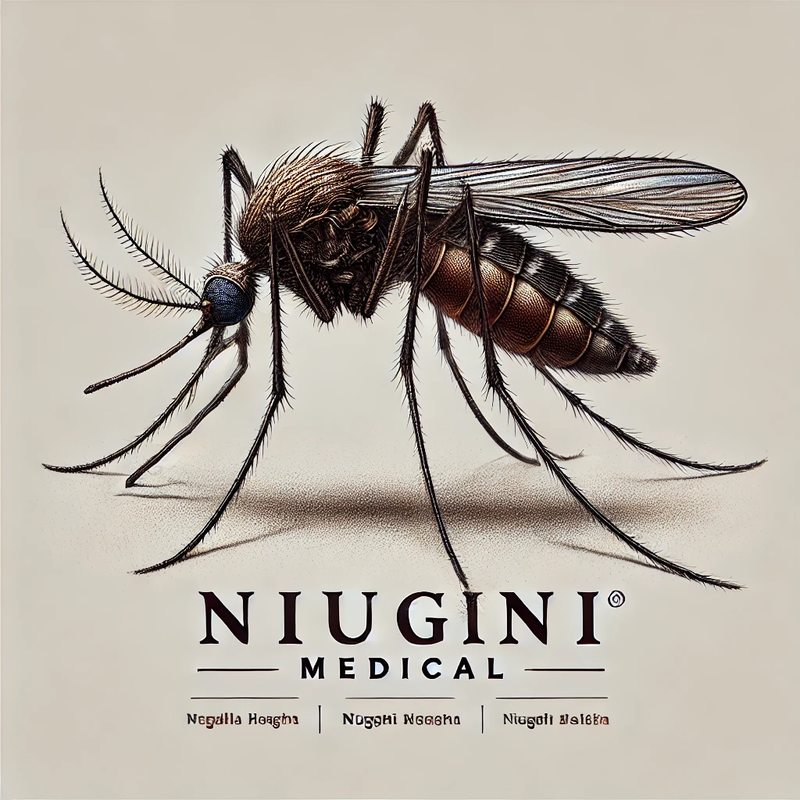Malaria Test, Plasmodium Falciparum test, P. Vivax Testing Papua New Guinea

Question 1. What is Malaria?
Malaria is a parasitic infection caused by plasmodium. The infection is transmitted through bite of a female mosquito. There are 4 different species of plasmodium in the world. These include falciparum, vivax, ovale and malariae. In PNG, nearly 80%-90% of malaria is caused by falciparum species and vivax species is second commonest. Malariae and ovale species are rare in PNG.
Question 2. What are the signs that I may have Malaria?
If you have malaria parasite in your body, you could have combinations of any of these complaints:
Fever
Felling hot & could
Shivering
Headache
Nausea & vomiting
Loss of appetite
Diarrhoea
Passing Dark urine
Note that malaria infection alone never causes ‘flu/cold’ symptoms or sore throat.
Question 3. What are complications of Malaria infection?
Severe or repeated malaria infection can lead to the following:
Anaemia (pallor)
Cerebral (brain ) malaria
Splenomegaly
Birth complications (miscarriage/anaemia in Pregnancy)
Growth failure in Children
Enlarged spleen (tropical splenomegaly)
Question 4. How is Malaria diagnosed in the laboratory?
Microscope:
Malaria can be diagnosed from a sample of blood taken via needle puncher or finger prick. Blood is smeared onto glass slide and a special malaria stain is used to stain the blood slide. The stained glass slide is then examined under light microscope looking for signs of parasite in your blood. The identification process can be very difficult to an untrained person. A specialist laboratory scientist is required to correctly identify the parasite and determine the species involved.
Rapid Test kits:
Nowadays, new kit method for diagnosing malaria is available. The kit contains antibody specific to malaria and when a drop of blood is placed on to the strip or card, a visible colour band appears that indicates presence of or absence of parasite. These kits are easy to do in any health care setting, do not require expert laboratory malarial scientist, and requires no microscope or power supply. Some kits can also pick up different species on the same strip or card. The main disadvantage at the moment is cost and low parasite level may be missed.
Question 5. Why is it important that I have a laboratory test for malaria?
There are very good reasons why you should have your blood taken for diagnosis of malaria.
Firstly, the patient’s complaint with malaria infection is many and not specific. Some complaints are similar to other common infections in PNG such as typhoid fever, dengue fever and other common viral infections. It is impossible to diagnosis a person with malaria when your only complaint is fever, headache or shivering when source of infection is not clear.
Secondly, malaria drugs used or regimen followed is not the same for all species. For example, chloroquine, quinine, artesunate or athermether is not good for plasmodium vivax, the second commonest malaria infection in PNG.
Thirdly, you can have other infection together with malaria infection. For example, you could have viral upper respiratory infection with malaria infection. So if blood test is not performed, your complaints can be dismissed for viral infection and not treated.
Lastly, you can have parasite in your blood system without any complaints. This occurs in people living in high malaria areas like the coastal villages. If this is not treated, you could develop long term complications or your infection may flare-up later.
Question 6. Could I still have malaria even if my test is negative?
Yes. If you have a low parasite level in your blood or if the malaria parasite is hiding in the liver and comes intermittently, your test could still be negative even if you have malaria. In this case, you doctor or health staff will treat you on clinical suspicion only.
Question 7. Is it possible to carry parasite without getting sick?
Yes. In PNG, malaria is very common. You could have malaria parasite in your blood without showing signs of malaria infection. However, you should be treated to prevent long term complication (see above) or avoid flare-up later.
Question 8. Is treatment for all species the same?
No. The choice of anti-malaria and regimen followed is different for different species. Consult your doctor for more information. This is one important reason for doing a blood test.
Question 9. I have completed my treatment; I am still suffering symptoms of malaria. What do I do?
First, it is important that you complete your medication as advised by your health worker or doctor. If you have taken your medication as directed, the following are common reasons:
Your complaints were not due to malaria (get your self-reviewed again by your doctor or another doctor)
You are infected with species of malaria that is not cured by the tablets you took (you need blood slide taken and change of treatment)
Your parasite is resistant to treatment (review with your doctor).
You may be partially treated. You may require repeated doses anti-malaria.


